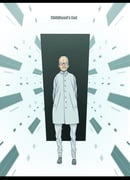arthur c. clarke
Sir Arthur Charles Clarke (16 December 1917 – 19 March 2008) was a British science fiction writer, scientist, explorer, inventor and futurist. He is famous for his short stories and novels, including The Sentinel (1948), Childhood's End (1953), 2001 A Space Odyssey (1968), Rendezvous with Rama (1972) and many others. Clarke's novels are notable for including several scientific facts and logical predictions that have proven true over the course of time and the advancements in technology. For many years Robert A. Heinlein, Isaac Asimov, and Clarke were known as the "Big Three" of science fiction literature.
Clarke also served in the Royal Air Force as a radar instructor and technician from 1941 to 1946. In 1945, he proposed a satellite communication system, an idea that, in 1963, won him the Franklin Institute's Stuart Ballantine Medal. He was the chairman of the British Interplanetary Society from 1947 to 1950 and again in 1953.
In 1956, Clarke emigrated to Sri Lanka, largely to pursue his interest in scuba diving. That year, he discovered the underwater ruins of the ancient Koneswaram temple in Trincomalee. He lived in Sri Lanka until his death. He was knighted by Queen Elizabeth II in 1998 and was awarded Sri Lanka's highest civil honour, Sri Lankabhimanya, in 2005.

